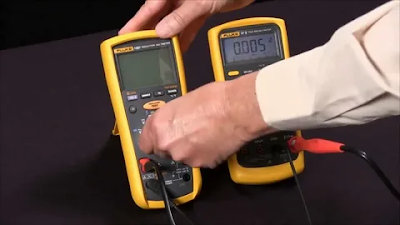Factors Influencing the Accuracy of Temperature Calibration
Temperature calibration plays a crucial role in various industries and scientific fields where precise temperature measurements are paramount. Achieving accurate temperature calibration involves considering several key factors that can influence the reliability and precision of temperature measurements.
In this blog post, we'll explore these influential factors, shedding light on the intricacies of temperature calibration and its critical role in ensuring accurate temperature readings.
Importance of Precise Temperature Calibration
Before delving into the factors influencing temperature calibration accuracy, let's underscore the importance of this process. Temperature calibration involves verifying and adjusting temperature-measuring instruments to ensure they provide accurate readings. In industries such as manufacturing, healthcare, and food production, precise temperature calibration is essential for maintaining product quality, safety, and operational efficiency.
Quality of Calibration Equipment
The accuracy of temperature calibration is significantly influenced by the quality of the calibration equipment used. High-quality, well-maintained calibration instruments, including reference thermometers and temperature baths, are essential for conducting precise and reliable calibration procedures. The integrity of the calibration equipment directly impacts the accuracy of the calibration process and the subsequent temperature measurements.
Environmental Conditions
Environmental factors can exert a substantial influence on the accuracy of temperature calibration. Fluctuations in ambient temperature and humidity levels can impact the performance of temperature-measuring instruments. To mitigate these influences, calibration procedures should be conducted in controlled environments that minimise external factors that could compromise the accuracy of temperature measurements.
Temperature Sensor Stability
The stability and reliability of temperature sensors play a critical role in temperature calibration accuracy. Over time, temperature sensors may experience drift or degradation, leading to inaccuracies in temperature measurements. Regular maintenance and periodic recalibration of temperature sensors are essential for ensuring their stability and accuracy, thereby contributing to the overall precision of temperature calibration.
Calibration Intervals
The frequency at which temperature calibration is performed can significantly affect the accuracy of temperature measurements. Establishing appropriate calibration intervals based on the specific requirements and usage patterns of temperature measurement instruments is essential for maintaining consistent accuracy over time. Regular calibration at predefined intervals ensures that temperature-measuring instruments continue to deliver precise readings.
Calibration Procedures and Standards
Following standardised calibration procedures and adhering to recognised calibration standards are crucial for achieving accurate and Reliable Temperature Calibration results. Systematic and meticulous execution of calibration processes, in accordance with established standards, is essential for ensuring the precision and reproducibility of temperature measurements. Adhering to industry-accepted calibration standards helps maintain consistency and accuracy across various temperature measurement instruments.
Operator Skills and Training
The proficiency and expertise of the individuals conducting temperature calibration procedures profoundly impact the accuracy of the calibration results. Well-trained and experienced calibration technicians are better equipped to perform calibration processes with precision and consistency, minimising potential errors and uncertainties. Adequate training and proficiency of operators are essential for achieving accurate temperature calibration outcomes.
Conclusion
In conclusion, the accuracy of temperature calibration is influenced by a myriad of factors, including the quality of calibration equipment, environmental conditions, temperature sensor stability, calibration intervals, adherence to standards, and the proficiency of calibration operators. Considering and addressing these influential factors is essential for maintaining the reliability and precision of temperature measurements across various industrial and scientific applications.
Accurate temperature calibration not only ensures product quality, safety, and regulatory compliance but also contributes to operational efficiency and process optimisation. By recognising and prioritising these influential factors, organisations can achieve robust and accurate temperature calibration, thereby enhancing the integrity and reliability of their temperature measurements.


Comments
Post a Comment